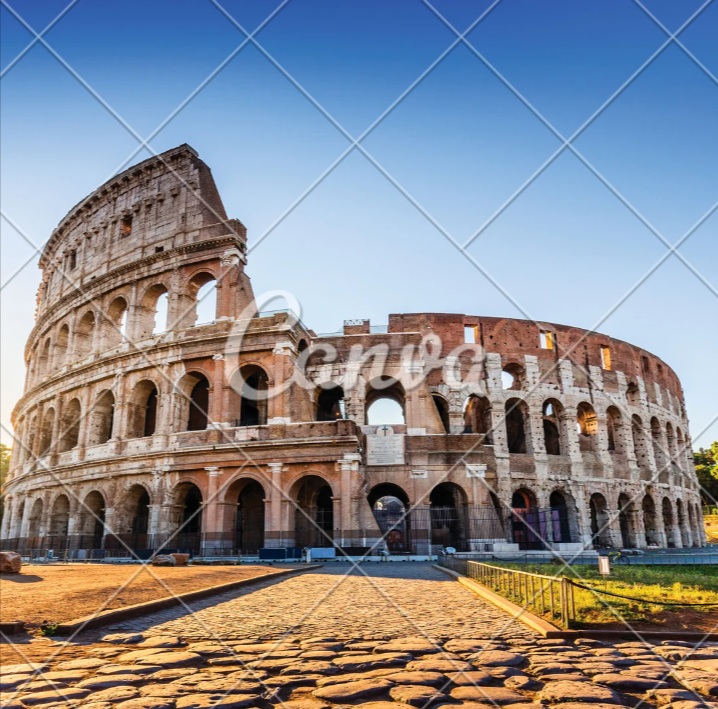Greetings, history enthusiasts and seekers of knowledge! Today, we embark on a journey through the corridors of time to explore the enigmatic world of Ancient Rome. While many of us are familiar with its grandeur, conquests, and iconic figures like Julius Caesar and Augustus, there’s a plethora of lesser-known facts that add layers of intrigue to this ancient civilization. Prepare to be astounded as we uncover ten captivating facts about Ancient Rome that might just surprise you:

- Romans Had Public Bathrooms: While public restrooms may seem like a modern convenience, the Romans were pioneers in communal hygiene. They constructed elaborate public baths called “thermae,” where citizens could socialize, exercise, and cleanse themselves. These baths were not only a place for personal hygiene but also served as social hubs where people discussed politics, business, and gossip.
- Roman Concrete is Still Standing: The Romans were master builders, and their architectural prowess is evident in structures like the Pantheon and the Colosseum. What’s remarkable is that much of their concrete still stands today, showcasing its durability and longevity. Unlike modern concrete, Roman concrete included volcanic ash, making it incredibly resilient to the elements.
- The Roman Calendar Was Lunar: Before Julius Caesar introduced the Julian calendar in 45 BCE, the Roman calendar was lunar-based, with months aligning closely with lunar cycles. This led to discrepancies and confusion in tracking time, prompting Caesar’s reform to synchronize the calendar with the solar year.
- Gladiators Were Not Just Men: While the image of male gladiators battling in the arena dominates popular perception, women also participated in gladiatorial combat. Known as “gladiatrix,” these female fighters competed in specially designated arenas and were celebrated for their courage and skill.
- Romans Used Urine as a Cleaning Agent: Yes, you read that right! The resourceful Romans utilized urine, known as “amarium,” as a cleaning agent due to its ammonia content. They collected urine from public urinals and used it to launder clothes, whiten teeth, and even as a component in some cosmetics.
- The Romans Had a Complex Sewer System: The ancient Romans were pioneers in urban planning, and their sophisticated sewer system, known as the Cloaca Maxima, was a marvel of engineering. This network of sewers, constructed primarily in Rome, efficiently drained wastewater and prevented flooding, contributing to public health and sanitation.
- Romans Had a Taste for Exotic Foods: Roman cuisine was diverse and included delicacies like flamingo tongue, sow’s womb, and even stuffed dormice. The affluent indulged in extravagant feasts featuring exotic ingredients from across the empire, showcasing their wealth and sophistication.
- Romans Loved Fast Food: In bustling Roman cities, street vendors sold a variety of fast food items to cater to busy citizens. From cooked meats and fish to pastries and honey-glazed treats, these portable snacks provided quick and convenient sustenance for people on the go.
- Romans Used a Sponge on a Stick as Toilet Paper: Long before the invention of modern toilet paper, Romans used a sponge affixed to a stick, known as a “tersorium,” to cleanse themselves after using the restroom. The sponge was often shared among multiple people and kept in a communal container of saltwater for hygiene purposes.
- Romans Practiced Vomiting During Meals: In a peculiar custom known as “vomitorium,” some affluent Romans would purge themselves during feasts to make room for more food and drink. This practice, though not widespread, reflects the excesses and decadence of certain segments of Roman society.
As we delve deeper into the annals of history, we uncover the fascinating intricacies of Ancient Rome—a civilization of innovation, extravagance, and enduring legacy. These lesser-known facts offer glimpses into the daily lives, customs, and quirks of a bygone era, enriching our understanding of this remarkable empire.
Until our next voyage into the realms of antiquity, continue to explore, question, and marvel at the wonders of history!
Yours in curiosity, Anthony
